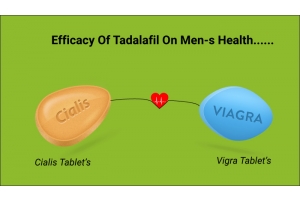Prostate cancer - Could a breast cancer drug reduce recurrence
Prostate cancer - Could a breast cancer drug reduce recurrence
Prostate cancer is cancer that occurs in the prostate — a few walnut-shaped gland in men that produces the seminal fluid that nourishes and transports sperm.
Prostate cancer is one of the most possible types of cancer in men. Lenalid 10mg Usually prostate cancer grows low and is initially confined to the prostate gland, where it may not cause serious harmful. However, while possible types of prostate cancer grow slowly and may need minimal or even no treatment, other types are aggressive and can spread quickly.
A new study suggested that combining a breast cancer drug with hormone therapy could be a more effective strategy to reduce the progression and recurrence of prostate cancer in men.
PARP inhibitors and ADT: A winning combo?
To reach their findings, the team used a variety of analytic method to access how prostate cancer cells reply to ADT.
Idrofos 150mg found that while ADT is effective for kill prostate cancer cells, the therapy also prompts the activation of poly ADP ribose polymerase (PARP) enzymes in these cells. PARP enzymes trigger DNA repair, which encourages cancer cell growth and helpful them to evade hormone therapy.
PSA screening for prostate cancer
The PSA test is one of the predominant treatment uses to diagnose prostate cancer. It assesses levels of prostate-specific antigen in the blood, which is a protein reduce by cells in the prostate gland.
The American Cancer Society (ACS) state that the majority of men without prostate cancer will have a PSA level under 4 nanograms per ml. Men with a PSA level of between 4 and 10 nanograms per milliliter have a 1 in 4 chances of having prostate cancer, while a PSA level over 10 is associated with a 50 percent chance of create the disease.
However, there are many other factors that can influence a man's PSA levels, involving urinary tract infections and certain medications. As such, research has indicated that PSA treatment run the risk of yielding false-positive results for prostate cancer, which may put men through unnecessary stress and treatment.
Complications
Complications of prostate cancer and its treatments include :
Cancer that spreads (metastasizes) - Geftinat 250mg can spread to nearby organs, such as your bladder, or travel through your bloodstream or lymphatic system to your bones or other organs. Prostate cancer that spreads to the bones can cause pain and broken bones. Once prostate cancer has spread to alomost areas of the body, it may still reply to treatment and may be controlled, but it's unlikely to be cured.
Incontinence- Both prostate cancer and its treatment can cause urinary incontinence. Treatment for incontinence depends on the type you have, how severe it is and the likelihood it will prove over time. Treatment options may include medications, catheters and surgery.
Erectile dysfunction- Erectile dysfunction can result from prostate cancer or its treatment, including surgery, radiation or hormone treatments. Medications, vacuum devices that assist in achieving erection and surgery are available to treat erectile dysfunction.








